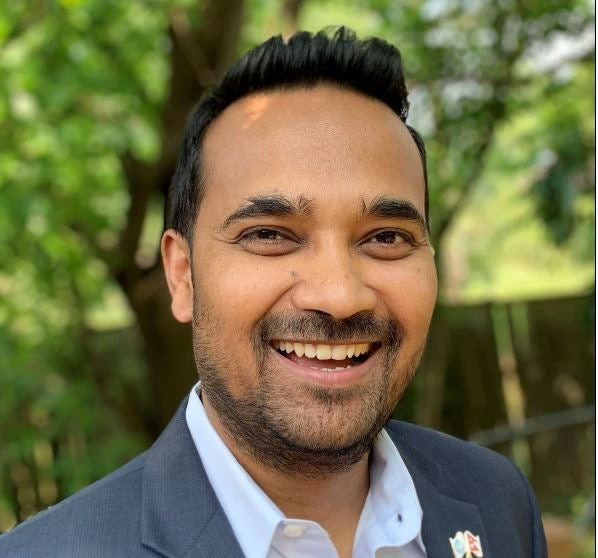A new video created by the World Bank’s Data Use and Literacy Program team makes the case for increased attention to building data literacy.
For centuries, people have collected and used data to help make sense of the world around them. Only in the modern era have opportunities to work with high-quality data grown beyond the purview of the elite few. Today, vast amounts of useful, actionable data are available, but a persistent data divide prevents people around the world from exploiting the full potential of data for development.
One driver of the data divide is a lack of data literacy – that is, an individual's capacity to find, access, read, work with, and analyze data to responsibly inform decisions. Recognizing that data literacy is an essential skill for the 21st century, the World Bank’s Data Use and Literacy Program has organized data skills training initiatives at the national level and worked with partners such as Code for Africa to increase capacity for data use at multiple levels with a view to improving people’s lives and livelihoods, and safeguarding the planet.
Data literacy is key to enhancing governance
An early example of putting data into the public domain to increase the general welfare comes from the UK. In 1854, the hazards of life at sea prompted the establishment of the United Kingdom’s Meteorological Office, tasked with studying weather data in the Atlantic Ocean. Then in 1859, a devastating storm struck the British Isles, causing the deaths of over 800 people and destroying more than 130 ships. In response, the Meteorological Office established the first Storm Warning service to inform the public of potentially dangerous conditions.
Disaster preparedness and response is just one of the many areas where using data effectively has become essential. When governments have access to data and the skills to use it, they can apply it to society’s many complex challenges , including poverty and climate change, enabling evidence-based policymaking and service delivery that improves people’s lives while protecting the planet for future generations.
A case in point is Makoko, an informal settlement built over the water in Lagos, Nigeria’s largest city. As of 2019, this huge community of hundreds of thousands of residents had not been mapped in detail, which made it difficult to prioritize, coordinate, and implement investments in infrastructure and services. Things began to change when a coalition of civil society and media organizations collaborated with community members to gather data on roads and service delivery points through drone photography, and to map the information in the hope of enabling more effective government responses to the community’s needs.
An aerial view of Makoko, a floating slum in Lagos, Nigeria. A mapping initiative led by civil society and media organizations aimed to help enable a better quality of life for residents. Photo: ©bolarzeal / Shutterstock
Around the world, by harnessing the power of data, governments can better understand barriers to service delivery and access in underserved communities so that they can provide better healthcare, education, and infrastructure for even the most vulnerable, like the people of Makoko.
Data literacy helps create prosperous and inclusive societies
Data literacy enables citizens and organizations to contribute to these efforts and hold governments accountable for their promises. Knowing how to collect and use data allows scientists and entrepreneurs to innovate for a carbon-free future, enables journalists to ask the right questions, and empowers citizens to act collectively to improve society. The example of Makoko is a powerful illustration of the need for grassroots capacity and skills to collect and generate data, because often it is only at the local level that people can identify the data-driven solutions that might help fix specific problems.
At the individual level, data literacy can also empower people to improve their livelihoods in concrete ways. Data literacy offers direct economic benefits to individuals through higher-paying jobs. Data-smart agriculture can help smallholder farmers find the best market prices, make better decisions about planting and fertilizer use, and minimize weather-related risks. Businesses that use data effectively can find new markets and serve their customers better, supercharging economies.
But as the amount of data in the world grows exponentially, risks do too. Citizens need to be able to separate data that is accurate and relevant from what is not , and to identify narratives that are misleading or outright false.
The importance of being able to interpret data-driven stories was clear during the COVID-19 pandemic, for example, when people had to make daily decisions to protect their health – such as whether to wear masks or get vaccinated – in a rapidly changing information environment. The challenge to citizens of extracting credible insights from a firehose of data will only increase as artificial intelligence becomes a bigger part of our lives.
Enhancing data literacy will help countries cross the data divide , giving them new tools to foster development while tackling the biggest challenges of our time. It will also empower people to improve their lives and make healthy decisions, weeding out untruths.
Data literacy puts data to work for all of us, and it is essential for building more inclusive and resilient societies on a livable planet. Learn more about strengthening data literacy around the world.




Join the Conversation